#demotic
Note
would love to hear from a real Greek on the subject of Katharevousa. What do you think of it? Are there some conflicting opinions between the older and younger generations on this matter? What is the general Greek opinion? is it simply viewed as an elitist ideology for purists or an inspiring dream to reinstate Ancient Greek? sincerely, a humbly curious non-Greek individual...
Hello, my friend! You bring up an interesting and very complex topic. I would say my opinion on this is less passionate, more moderate than of the average Greek and ironically this also means my opinion might seem edgy to the average Greek!
That is because a majority of Greeks loathe Katharevousa (or what they think it stands for), with older generations being more neutral whereas younger generations can express a very baffling fierce hate towards it, despite never having to study it.
The reasons for this hate are the following:
1. It is harder than Demotic and most Greeks have an allergy at whatever Greek-related presents even the slightest of additional challenge to them.
2. Its existence has been relentlessly and unfairly politicised since the early 20th century, when the historical national and then transformed into political disunity of the Greeks was channeled into many things, including painting those who were positive towards katharevousa as nationalists, fascists and extreme far rights in general.
*The second reason bleeds into the first, in some ways. Young Greeks will unironically say “why should I learn something Greek that needs a little more effort or even slightly resembles something ancient, am I a nationalist or anything?”. That is because the old Great Division of the 20s and the Civil War of the 40s were never actually fully resolved but only passed on through political tensions, and thus somewhat mollified, yet still causing significant problems in the society which are now much harder to explain and find the root cause for, so they seem to appear out of nowhere. This leads to new generations of Greeks opposed to studying properly the Greek history and Greek culture and feeling very proud of their liberal (???) choice until a conversation with a foreigner who appears to know more about them than they do embarrasses them and sometimes gives them a wake-up call. Of course, not all young Greeks are like that, but a lot are.
In any case, I am not saying I prefer Katharevousa to Demotic. I prefer Demotic for the simple reason that it is the organic evolution of the Greek language, influenced by the actual history of the Greeks rather than the history the Greeks wished they had. For this alone, it wins. What I am saying is that Katharevousa does not deserve all the fierce hate and that I would honestly not mind having it used occasionally for whatever reason, just like I wouldn’t mind using any other form of the Greek language for whatever reason. And I do not confuse various forms of the language with various political ideologies, despite others doing so. Which is very much true by the way. During the national schism, Katharevousa was accused as the symbol of royalists, nationalists and conservatives on one side whereas Demotic was accused as the symbol of communists and Venizelists from the other side. In the 20s, Greek schools would change the lingual form taught every time the power changed hands. A tragedy for the students, really.
Katharevousa was originally NOT founded on an elitist ideology but rather on a sentiment of ethnic uprising. The term for this lingual movement first appears in 1796 and thus precedes the Greek Independence from the Ottoman Empire. It was supported by many Greek scholars and influential people of the time, most of all Adamantios Korais. Katharevousa is not an attempt at reinstating Ancient Greek but an attempt of removing all the influences in the contemporary Greek language by an empire Greeks were unwilling and often rebellious subjects of. Katharevousa means exactly that, “getting purified - cleaned”, not going back. Of course, it did not only remove Turkish elements, but Latin and Slavic ones and anything else for which there was an original Greek root and was thus considered redundant. By removing the foreign loanwords from Modern Greek, you automatically bring it to a state closer to Ancient Greek without meaning that it is an actual more ancient form of the language. The Katharevousan grammar certainly tried to resist simplifications and changes taking place in Demotic Greek but it still remained an essentially Modern rather than Ancient Greek grammar. I believe the syntax was also closer to Modern. In the end, Katharevousa was like a very posh, exclusively Greek-root, old-fashioned way to speak Modern Greek.
Which is why I dislike it when the “competition” of demotic and katharevousa is often referred to as “diglossia” which means “bilingualism” or when they are even called different idioms. We are not talking about two different Greek languages here and I am quite baffled when people claim to struggle to understand katharevousa. Honestly, at this point I don’t even believe they really mean it. You see, the level of education nowadays, with all its faults, is infinitely better than what it was at the time when katharevousa was actually taught at schools. In the late 19th and early 20th centuries, most kids wouldn’t even complete elementary school and then go work to some farmland so it makes total sense for them to struggle to adjust to katharevousa when they were only really communicating in basic demotic in real life. But for people nowadays claiming the same, I can’t take them seriously, I am sorry. Such things are connected. If a student of decent education by today’s standards can’t understand katharevousa, it can only mean they face really fundamental challenges in demotic as well.
Katharevousa did not intentionally marginalize lower social classes within the society itself but the unintentional challenges were inescapable due to the poor level of education I described. In the end, Katharevousa was used by the authors and poets, in the newspapers and later the TV and radio news, in written forms, such as official documents, even in personal letters. Regardless of their level of education, people tried in written form to apply as many katharevousan elements as possible, to the extent of their knowledge. In everyday speech, though, things were different. People would simply talk in the way that came most natural and effortless to them. It’s very interesting that in very old movies, if there is a narrator, you can observe that the narrator speaks in a mild more katharevousa-like form while the actors playing the roles use demotic, obviously because otherwise the ending result wouldn’t be very realistic to the people watching. However, rich Greeks and aristocrats would more often speak in katharevousa too, exactly because they could receive much better education and get the hang of it, inevitably making this a social issue without it ever intending to be one. And then of course it had also the politics of the country imposed on it secondarily, which is a very sad and unfair equation that handicaps Greek progress in all matters.
What happened with Katharevousa and Demotic is not an unprecedented occurrence in Greek at all. This is literally Greek's constant lingual history. It can be observed in Ancient Greek, as the Classical Attic you may have read was in no way identical to the everyday language Ancient Greeks spoke. Throughout all the East Roman / Byzantine Era, scholars would try desperately to retain as many archaic elements as possible, to the growing impatience of the populace. While its full achievement was always doomed to be a lost cause, let’s also acknowledge that the reason Greeks boast about how conservative Greek is for a language so old would not exist, if all those scholars throughout the centuries did not struggle to preserve older elements, and katharevousa’s case is not different. A few of its elements have actually passed to demotic, such as phrases and expressions in the dative, even though this case has been dropped in the Demotic Greek grammar otherwise.
In the seventies, after huge political changes taking place in the country which struggled to finally enjoy some peace and quiet, katharevousa was abolished along with the monarchy and the dictatorship as another sign of nationalism, conservatism, anachronism and so on. In my opinion, a lingual form on its own does not deserve to be vilified like this.
Nowadays, you will hear just about anything as an accusation to prove how evil Katharevousa was. Some say it had “mistakes” because it was an academic process of reshaping the language against its natural, organic evolution. I would consider this, had it not been for demotic also having some funny shortcomings of its own. In case you are wondering what such a shortcoming can possibly be in a language - well, as Greek keeps evolving, some things change first while others stay behind. The elements that stay behind have trouble adjusting for practical or aesthetical or other reasons. Here is one example:

Modern Greek faces a hilarious problem with the verb εκρήγνυμαι (ekríghnime - I explode). It is a verb with a distinct archaic form which is super ugly to a violating degree if you adjust it to the modern Greek conjugation of the simple past. As a result the ancient formation of the simple past is fully retained, which is not irregular but it is hard enough that it appears irregular by modern standards (εξερράγην - exerráyin - no it’s not irregular!). As a result many people might not know it and mess it up entirely by trying to apply modern formations which will earn them mocking later if it's on TV or paper (ie εκρήχτηκα - ekríhtika - can kill you instantly if it comes from the mouth of a journalist) or you are going to see it on their face real-time that they go through the five stages of grief and seven consecutive panic attacks as they try to say “it exploded” without actually saying “it exploded”! Even more hilariously, the screenshot I added shows all the conjugations by labelling them “for scholar use” and it adds another label clarifying that only the third person of singular and plural are actually regularly used (apparently needed when speaking for bombs) and the others are avoided as much as possible. In short, we try not to use the past of a simple verb such as “explode” because we have no idea how to say it because adjusting it to modern is so monstrous that you have no solution other than keeping it entirely ancient, in a phrase otherwise entirely modern! It is actually very funny.
I said all these in order to stress how people trying to find unacceptable “flaws” in katharevousa are hypocritical because if we accept that a concept such as “flaws” is possible in a language, then it does exist in organic demotic as well. On the other hand, it also depends on the speaker. Katharevousa supporters varied in their ferocity and whereas most just kept it at the "purifying modern" object, some others tried to mix it with actual Koine or Attic Greek, undoubtedly causing lingual teratogenesis.
Some last notes: katharevousa is not entirely extinct. It is used by a newspaper, it is the language used by the Churches of Greece and Cyprus and by the Ecumenical Patriarchate of Constantinople, as it resembles more Koine (Biblical) Greek which is their actual sacred language. Some people show it off on internet comments but you can usually (not always) guess their political ideologies which is unfortunate. Ironically though, Modern Standard Greek, which is the common language we speak right now, is according to linguists considerably influenced by the katharevousa in its mixing with demotic. So, standard Greek, even though it derives from Demotic and it is technically Demotic Greek, is closer to Katharevousa than the Demotic of the 20th century is.
Another interesting point is made by Georgios Babiniotis, the currently most prominent Greek linguist. An unlikable guy if you ask me, but I can’t help but agree with this point. Although the polytonic stress system was abolished along with katharevousa with the reasoning that it served no point in Modern Greek, Babiniotis says that this was a mistake, as the monotonic system has surprisingly caused a deterioration of the musicality and correct articulation in Modern Greek. In fact, anyone who knows can go watch kids reciting poems in school and you will realise it is true. I am not putting myself out of this. Sometimes I read something loudly and I think to myself “heck in my mind this sounds so much better, why am I reciting it so poorly?!”. Even though I actually have a perfect articulation up to this stage in my life, my reciting is bland like of most people, while it wasn’t the case at all with the people in the near past. You can hear the difference when you hear actors of the 50s and actors in movies now. Both spoke in demotic, but actors of the 50s spoke much more beautifully on so many levels, including intonation and articulation. This agrees with a post I made recently unknowingly when on my own I realised that the grave accent is actually retained in modern Greek when spoken animatedly or carefully and correctly. I was almost scared to publish that post because I am no linguist but I was excited to see that the -always otherwise unlikable- Babiniotis said this too! Few liked that post - dunno if everyone hated it or it was just a huge post published at 5 am. Or both. Aaaaaanyways, I am linking it here in case anyone has reached so far down and is interested.
To summarise, Katharevousa was the victim of the insane political infighting that is such a trademark of the Greeks. It was founded on ethnical rather than elitist reasonings. It wasn’t trying to exclude anyone even though this might have indeed happened unintentionally. It is still Modern Greek. I don’t believe it should ever eradicate Demotic, however I value its existence and I think it could have a place of application and people should be free to use (within reasonable context) or enjoy it without being vilified or immediately have their political beliefs assumed. I personally find it beautiful but I also find Demotic beautiful, just in different ways. In some occasions I prefer one and in others the other. I enjoy prose and poetry in Katharevousa, it’s bloody beautiful. But use of rich and intricate demotic is also insanely wonderful. Both are great and I genuinely feel this way. I can get behind the reasoning that if a foreign loanword doesn't sound very aesthetically pleasing in the Greek language, it shouldn't be considered weird or eccentric to prefer the Greek-root word and give up on the loanword. I have used this example before, if the loanword is "dudúka", while two Greek-root words of the exact same meaning exist ("tilevóas" and "megháphono"), then why the heck would I want to use "duduka"?! No offense to the language that it comes from, but this word... I mean, come on. It doesn't sound good at all in Greek. Same with the grammar. If someone can use more intricate and complex grammar, why should we immediately blame them for doing what they can do? Come on, guys.
#greece#greek language#languages#linguistics#langblr#language stuff#modern greek#katharevousa#demotic#greek history#greek culture#anon#ask#tw long#tw long text
44 notes
·
View notes
Text
In 1799 a French soldier unearthed a strange black slab that would change history. Known today as the Rosetta Stone it was the key to understanding Egyptian hieroglyphs.
25 notes
·
View notes
Text

Rosetta Stone (early 2nd century BCE)
The Rosetta Stone very famously allowed for the deciphering of Ancient Egyptian hieroglyphs through it's repetition of the same text (a decree dating to March 27, 196 BCE) in hieroglyphs (top), Demotic (middle), and Greek (bottom).
The Rosetta Stone is housed at the British Museum in London, United Kingdom.
(sorry for the glare; there was a window very inconveniently placed opposite the glass. a replica was also on display and i was able to get better pictures of the replica, so i will post those shortly.)
#isaac.jpg#archaeology#greek#classical archaeology#egyptian archaeology#egyptology#egypt#greece#demotic#egyptian hieroglyphs#hieroglyphics#rosetta stone#british museum
135 notes
·
View notes
Photo
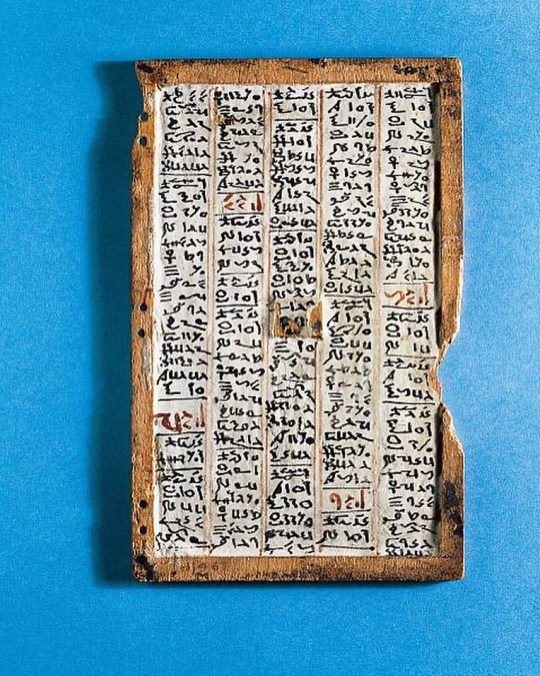
Astronomical Text ('Stobart Tablets') (71 AD - 77 AD) National Museums Liverpool, World Museum One of the four ‘Stobart Tablets’ with Demotic inscriptions on either side recording astronomical observations during the reigns of the Roman Emperors, Vespasian, Trajan and Hadrian between AD 71 – 133. Each tablet gives positions from year to year of the five planets in the ecliptic according to the following order: Saturn, Jupiter, Mars, Venus and Mercury. The positions are indicated in the order: month (from 1 to 12 and epagomenae), day (from 1 to 30) and zodiacal sign. Such compilations of planetary tablets were used for the casting of horoscopes; the basis of computation is uncertain. They provided for any specific day the zodiacal sign within which each planet was located. This practice does not go back to Egyptian 𓂋𓐝𓎀𓀂𓀭𓏪 “rmṯ” thought of the Pharaonic period; it derives from the influence of Babylonian astrology in the Graeco-Roman world. 📸 @museumofliverpool - (https://www.liverpoolmuseums.org.uk/artifact/astronomical-text-stobart-tablets) 𓋹𓎬𓋹𓎬𓋹𓎬𓋹𓎬𓋹𓎬𓋹𓎬𓋹𓎬𓋹𓎬𓋹𓎬𓋹𓎬𓋹𓎬𓋹𓎬𓋹𓎬𓋹𓎬𓋹𓎬𓋹𓎬 @egyptologylessons 𓋹𓊽𓋴𓆖𓎛𓇳𓎛 © 𓊁𓊁𓊁𓊁𓊁𓊁𓊁𓊁𓊁𓊁𓊁𓊁𓊁𓊁𓊁𓊁𓊁 #Ancientegypt #ägypten #egyptology #egypte #egitto #埃及 #مصر #egipto #이집트 #planets #horoscope #astronomy #astrology #demotic #liverpoolmuseum #liverpool (at Liverpool) https://www.instagram.com/p/Cm9mjRXOQpi/?igshid=NGJjMDIxMWI=
#ancientegypt#ägypten#egyptology#egypte#egitto#埃及#مصر#egipto#이집트#planets#horoscope#astronomy#astrology#demotic#liverpoolmuseum#liverpool
17 notes
·
View notes
Text
youtube
A brief overview of the Rosetta stone.
#egyptology#rosetta stone#egypt#hieroglyphics#demotic#greek#ptolemy v#ptolemaic#rosetta#stele#the british museum#ptah#history#Youtube
2 notes
·
View notes
Text
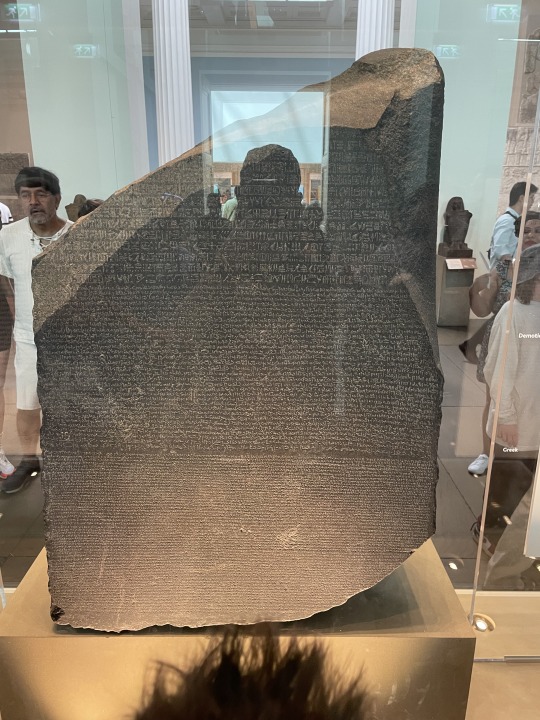
#Rosetta Stone#language#stele#Ancient Egypt#hieroglyphics#demotic#Greek#London#England#British Museum
1 note
·
View note
Text


...amok time sketch...
#WAIT I ACCIDENTALLY DEMOTED SPOCK!! HES MEANT TO HAVE TWO STRIPES#art#fanart#spock#s'chn t'gai spock#james t kirk#star trek#star trek fanart#kirk/spock#kirk x spock
2K notes
·
View notes
Text

#archerdoodles#myart#illustration#artwork#drawing#svsss#liu qingge#shen jiu#shen qingqiu#shen yuan#luo binghe#shang qinghua#mobei jun#pet cafe au#bunny qingge#dog binghe#catjiu#sqh is always demoted to couch#poor guys back lmao#scum villain#scumbag self saving system#scum villian self saving system
471 notes
·
View notes
Text








YASMIN FINNEY as ELLE ARGENT
Heartstopper Season 2
#heartstopper#heartstopperedit#heartstopper spoilers#yasmin finney#dailynetflix#tvedit#dailylgbtq#userbbelcher#tvcentric#usernorah#useraurore#noalook#userjake#tuserrishi#**l.myeditss#whoever coloured this show doesnt just deserve demotion they deserve to have little bad things happen to them for a month#im doing the best i can but not one of these was easy#1k
1K notes
·
View notes
Text


the newly vassaled gerudo king is inexplicably handed a baby
#tloz#legend of zelda#ocarina of time#oot#zelda#ganondorf#i actually think he would’ve been a teenager or so around the time zelda was born but. this is just for sillies so#and no idea when he actually swore fealty to the king. i actually feel like it might’ve been a bit before the events of the game#in my head it’s like. the war just ended and impa hasn’t been assigned as zelda’s attendent yet#and newborn baby zelda is somewhat of an afterthought atm and whoever was holding her before suddenly had urgent business to take care of#and ganondorf is like the most visible person in the vicinity and also everyone is treating him like shit because he Just Lost The War#and no one takes him seriously anymore despite Everything so it’s like haha oh ok so i’m just demoted to Giant Babysitter huh#for the next 5-10 minutes or so. i’m not apoplectic or anything rn#already having one of the most humiliating depressing weeks of my entire life what’s one more humiliating thing#meanwhile baby zelda is like *has no object permanence or sense of fear yet* Holy Shit Its Boar From My Visions
1K notes
·
View notes
Text
sue me for this but xie lian is such an unreliable narrator. Not because his perspective is messy like wwx, or that his memory is a little bad, oh nooo. But because this guy lies to everyone so hard he lies in his own narrative. Book one he's like "yeah I know a whole bunch about fangxin randomly, I used to collect scraps in banyue haha" and book two he literally goes "oh yes lang qianqiu I stabbed your father in the fucking heart out of pure vengeance, actually I stabbed your entire family in the heart. Every last damn throat? Cut by me. You think you can fight me and win? Boy, I was one member away from bringing down your whole ass dynasty in a single night and that member is you, do you honestly think you're any match for me?"
...why. why so unhinged.
#And don't get me started on Banyue#"Aha San Lan so funny story. I was the demoted general in Banyue. I tripped over the laces of my boots and was trampled to death!#What a day that was!“ And Hua Cheng deep down is like ”Gege WHAT“#Like Xie Lian honey NO. Just. Stop.#xie lian#hua cheng#hualian#heaven official's blessing#tgcf
269 notes
·
View notes
Text
For decades linguists were stuck when it came to deciphering Egypt’s hieroglyphics. Then the Rosetta Stone, one of history’s most important finds, came along and changed everything.
46 notes
·
View notes
Text

baby sister!!
#poor lo'ak is grumpy because he's been ''demoted'' to Middle Child™ after ~6-7 years of being the baby lol#avatar#avatar 2#sully family#neteyam#kiri#lo'ak#tuktirey#my art
862 notes
·
View notes
Text
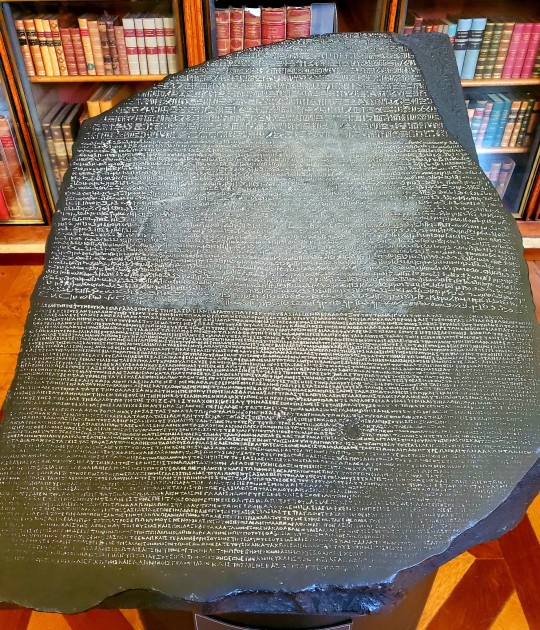
Replica of the Rosetta Stone at the British Museum
#isaac.jpg#archaeology#classical archaeology#greek#egyptology#egypt#egyptian archaeology#egyptian hieroglyphs#hieroglyphics#demotic#rosetta stone#british museum
16 notes
·
View notes
Photo
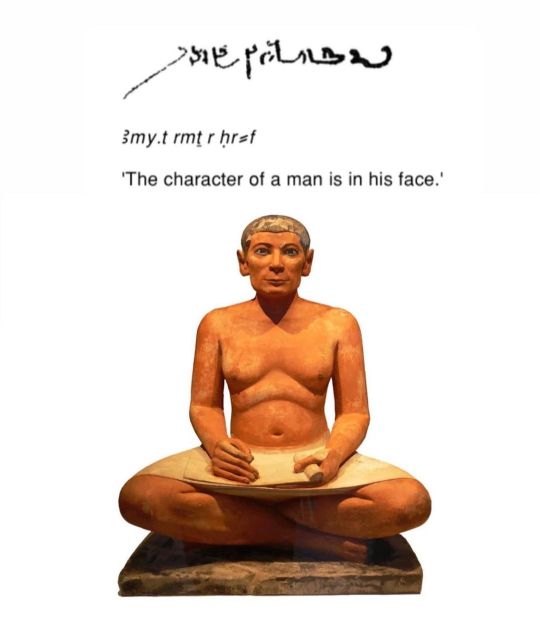
Ancient Egyptian Late Period Wisdom - Demotic Text “The character of a man is in his face”. This is an old adage of observing the body language of people to know if they are deceitful, honest, enlightened, ignorant, etc. 𓋹𓎬𓋹𓎬𓋹𓎬𓋹𓎬𓋹𓎬𓋹𓎬𓋹𓎬𓋹𓎬𓋹𓎬𓋹𓎬𓋹𓎬𓋹𓎬𓋹𓎬𓋹𓎬𓋹𓎬𓋹𓎬 Follow: @egyptologylessons 𓋹𓊽𓋴𓆖𓎛𓇳𓎛 𓊁𓊁𓊁𓊁𓊁𓊁𓊁𓊁𓊁𓊁𓊁𓊁𓊁𓊁𓊁𓊁𓊁 #Ancientegypt #ägypten #egyptianhistory #egyptology #hieroglyphs #egypte #egitto #埃及 #مصر #egipto #이집트 #demotic #ancientwisdom #saying #scribe #quotes #wisdom https://www.instagram.com/p/CjklyakOX5Z/?igshid=NGJjMDIxMWI=
#ancientegypt#ägypten#egyptianhistory#egyptology#hieroglyphs#egypte#egitto#埃及#مصر#egipto#이집트#demotic#ancientwisdom#saying#scribe#quotes#wisdom
17 notes
·
View notes
Text
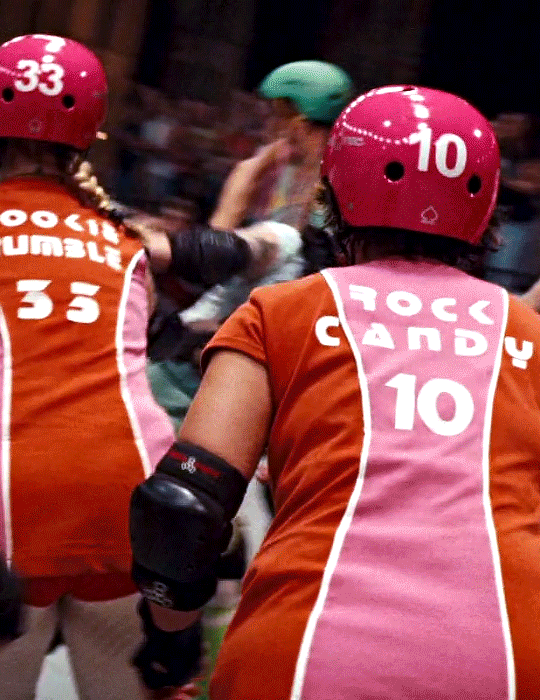

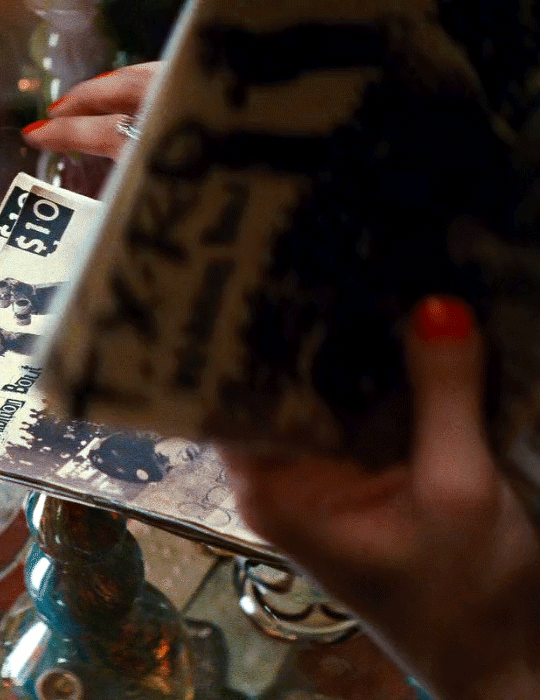


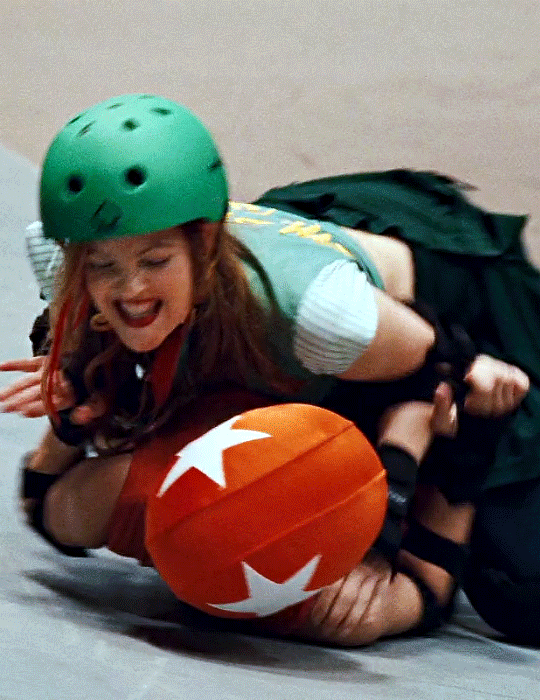
@pscentral event 18: adaptations
♡ whip it (2009) — dir. drew barrymore ♡
#whip it#whipitedit#filmedit#movieedit#moviegifs#filmgifs#cinematv#dailyflicks#tuserheidi#userauden#usertreena#userrobin#userleahrose#rogerhealey#userhollywood#omgari#.mimsi#the amount of demotions this set cycled through today...#just an hour ago it was going to be a poster set#12 hours before that i had an entire cute little layout i just had to clip shots into#but then i sat down to do it and like#just thought like this can be a few shots with basic coloring and it still counts huh 🤔
845 notes
·
View notes